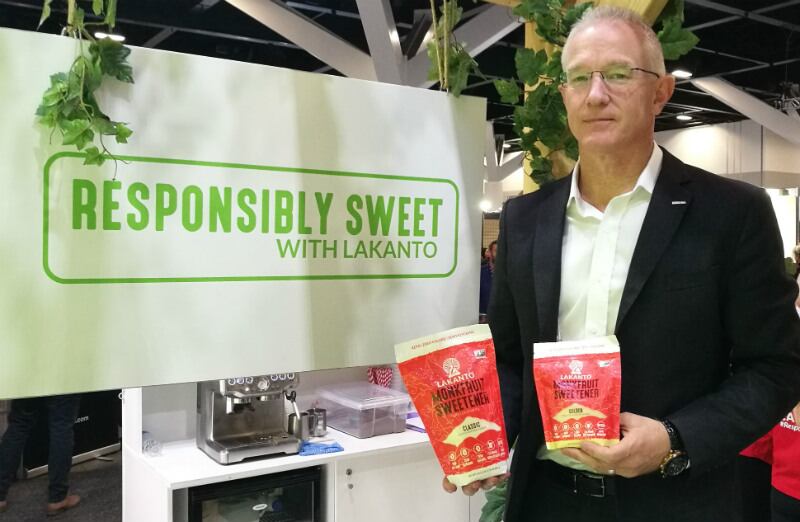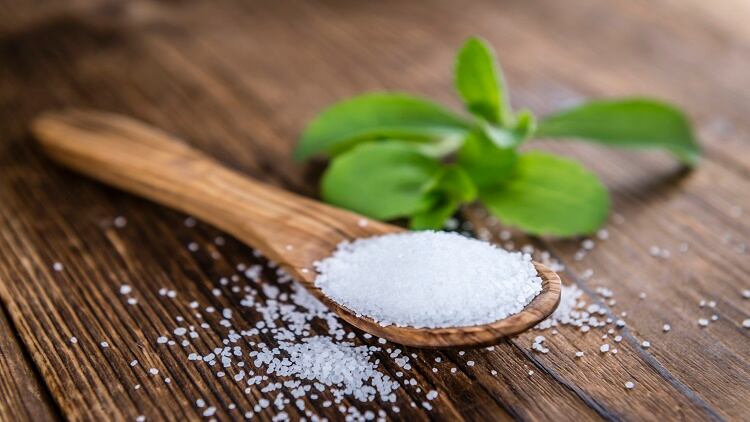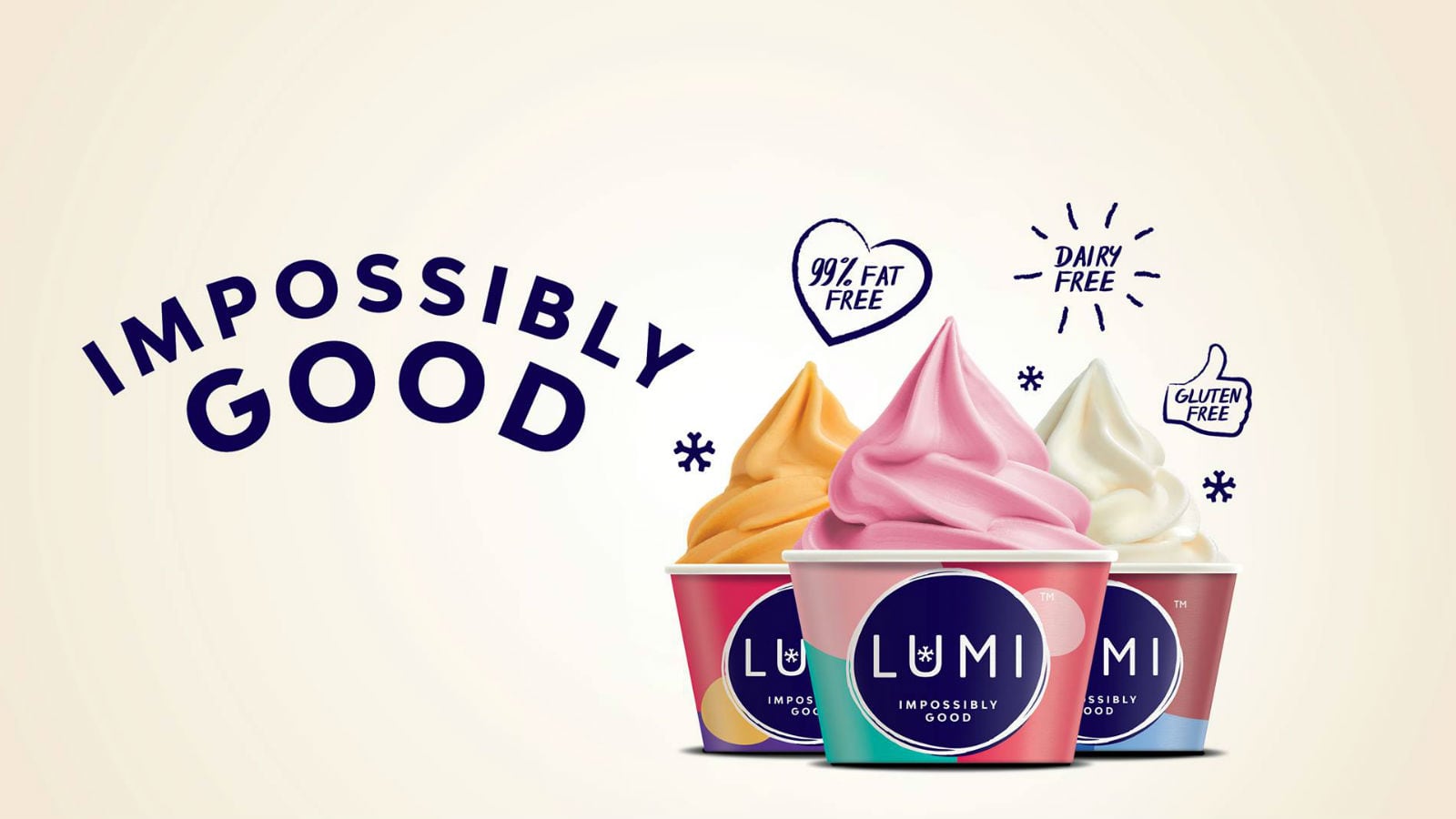The Lakanto brand’s cornerstone products are its Classic Monkfruit 1:1 Sugar Substitute which replaces white sugar, and its Golden variant which replaces raw sugar. The Golden variant contains more monkfruit seed and peel as opposed to just flesh, giving it a more malted, caramel flavour.
Both will be available in Australia and New Zealand come July 2019.
“Although both monkfruit and stevia are natural sweeteners which are up to 300 times sweeter than sugar, monkfruit has no maximum daily intake limit, whereas stevia does,” Lakanto Australia and Saraya Australia/New Zealand General Manager Leon McIndoe told FoodNavigator-Asia at the recent Naturally Good Expo 2019 in Sydney.
He added that monkfruit has also been approved as a sweetener in all food categories by FSANZ, whereas stevia has only gained approval in about half of these, because the maximum daily intake limit restricts the number of products it can go into.
“As much as 1:1 sugar replacers are good to use, [diversity of use is also very important], so we want to show that it is possible to cook and bake with this sweetener too, [unlike with stevia] which has some issues with bitterness when it is heated up.
“Importantly, we want to show food companies that it is not necessary to use artificial sweeteners or sugar when making food products, and as such are actively looking at working with more food manufacturers to do this.”
Lakanto’s monkfruit is sourced solely from China, which previously banned the removal of monk fruit or its genetic material from its shores in an attempt to protect its monopoly over the fruit’s cultivation.
Obtaining FSANZ approval
Saraya (which owns the Lakanto brand) is a Japan-based family-owned company that started out with a focus in sanitation products, but added the natural monkfruit sweetener business some ten to twelve years ago.
Following on the company’s significant success in Canada and the United States, Lakanto Australia decided to ‘spend the money to change the law with FSANZ’.
“The process took us three whole years to complete, and a whole lot of time and money,” said McIndoe.
Monkfruit or luo han guo has long been used in herbal teas and remedies in Asia, but its use as a sweetener was only approved by FSANZ late last year. Previously, its sale in Australia and New Zealand was limited to a flavouring or whole fruit format.
Within the Asia Pacific region, Lakanto has presence not only in Oceania but also in Japan, Malaysia, and South Korea.
“We’ve been looking at Thailand and Singapore too, but are still in the process of navigating regulatory issues so far,” said McIndoe.
“Lakanto is also present in Latin America and the Ukraine, but the one [large] area in the world that has not really yet recognized monkfruit extract is the European Union.”
Trends and innovations
McIndoe attributed much of the sweetener’s popularity in its current markets to a global health trend, and its ability to tie with the ongoing keto diet trend as well.
“It adds sweetness without extra carbohydrates, it’s gluten-free, it’s low on the glycaemic index and is only 1.1 calories per serve,” he said.
“We’re looking at making other [finished products here] like monkfruit-sweetened chocolate, which we hope can be out on market in Australia and New Zealand before Christmas this year.”
The importance of differentiating between consumer palates in different regions was also highlighted as a key point of focus for the company when doing any new product development.
According to Lakanto Australia/New Zealand Head of R&D Scott Anderson, there are two main channels to the company’s research and development currently.
“Our primary focus has been on both creating best-in-class products, e.g. a chocolate that tastes as good as the top chocolate in the market today, but is totally good for you [because it has no sugar],” said Anderson.
“The other thing is making products that can play to consumers’ subconscious and feelings.”
What this comprises is to make sure consumers not only subconsciously feel healthier, but also do not feel like they are losing out or compromising in any way when consuming Lakanto products.
“I believe that based on what we are doing, we can be seen as disrupting the current mix of products currently available in the market, [in] an area [that not that many] previously considered an alternative to artificial sweeteners,” added McIndoe.





